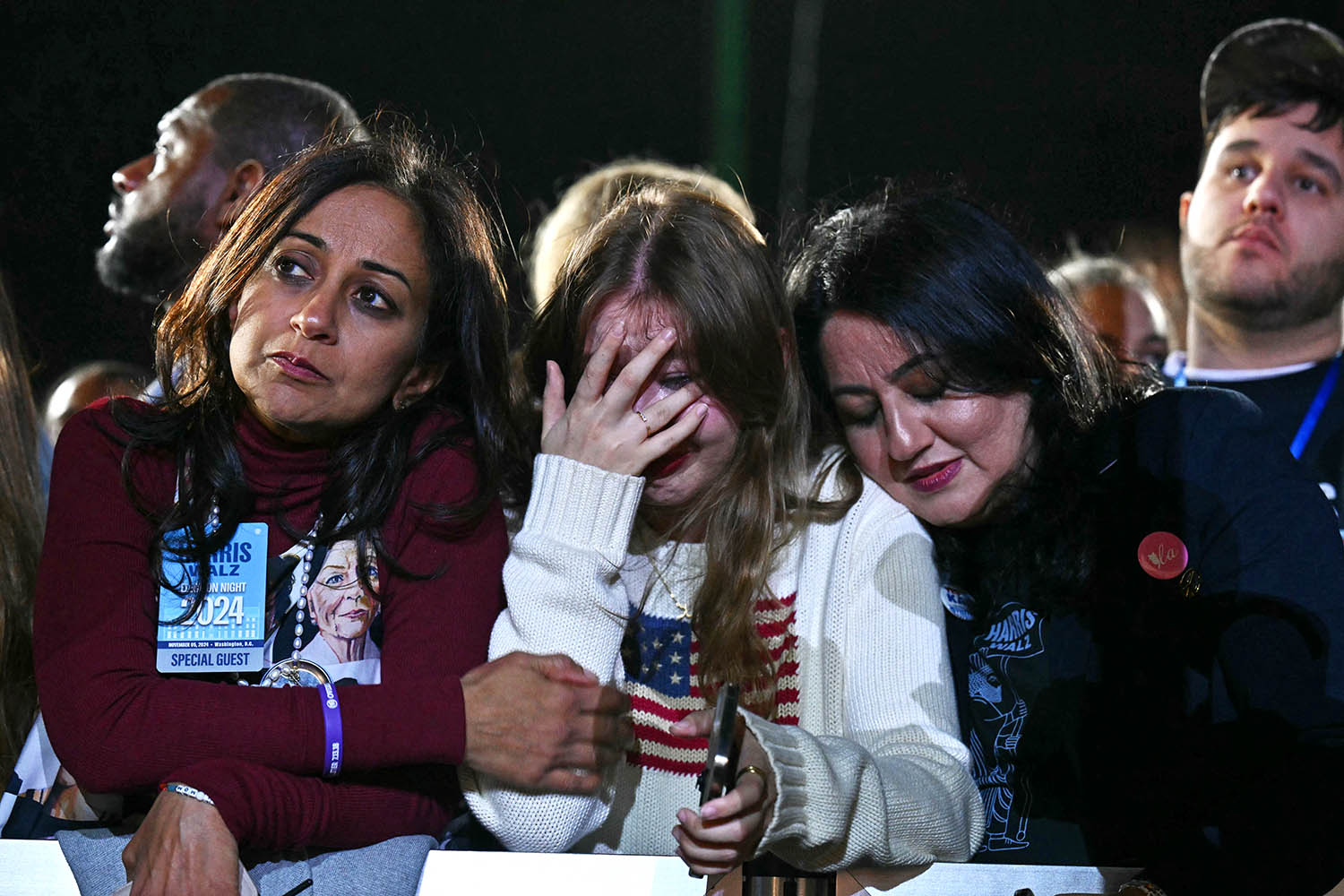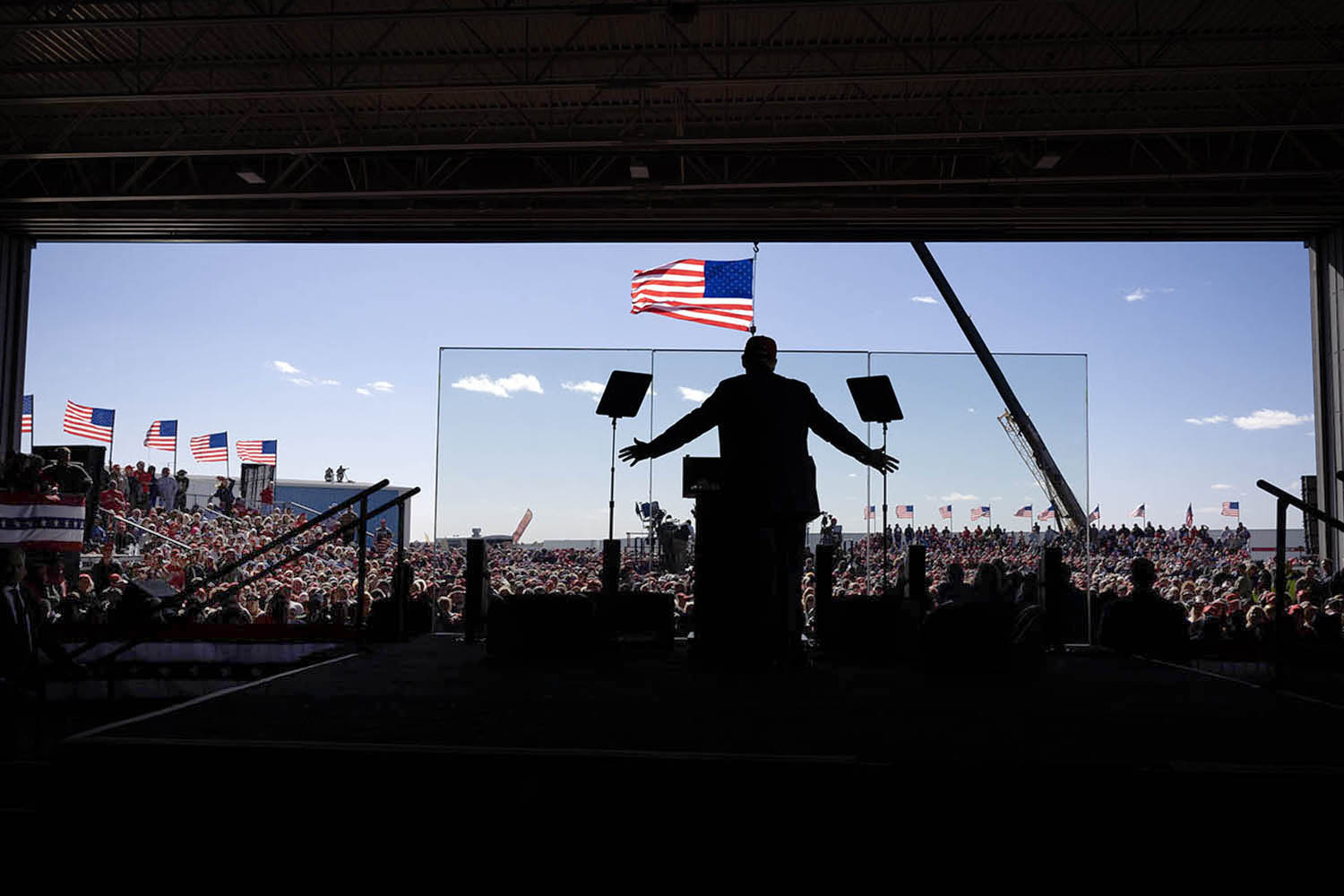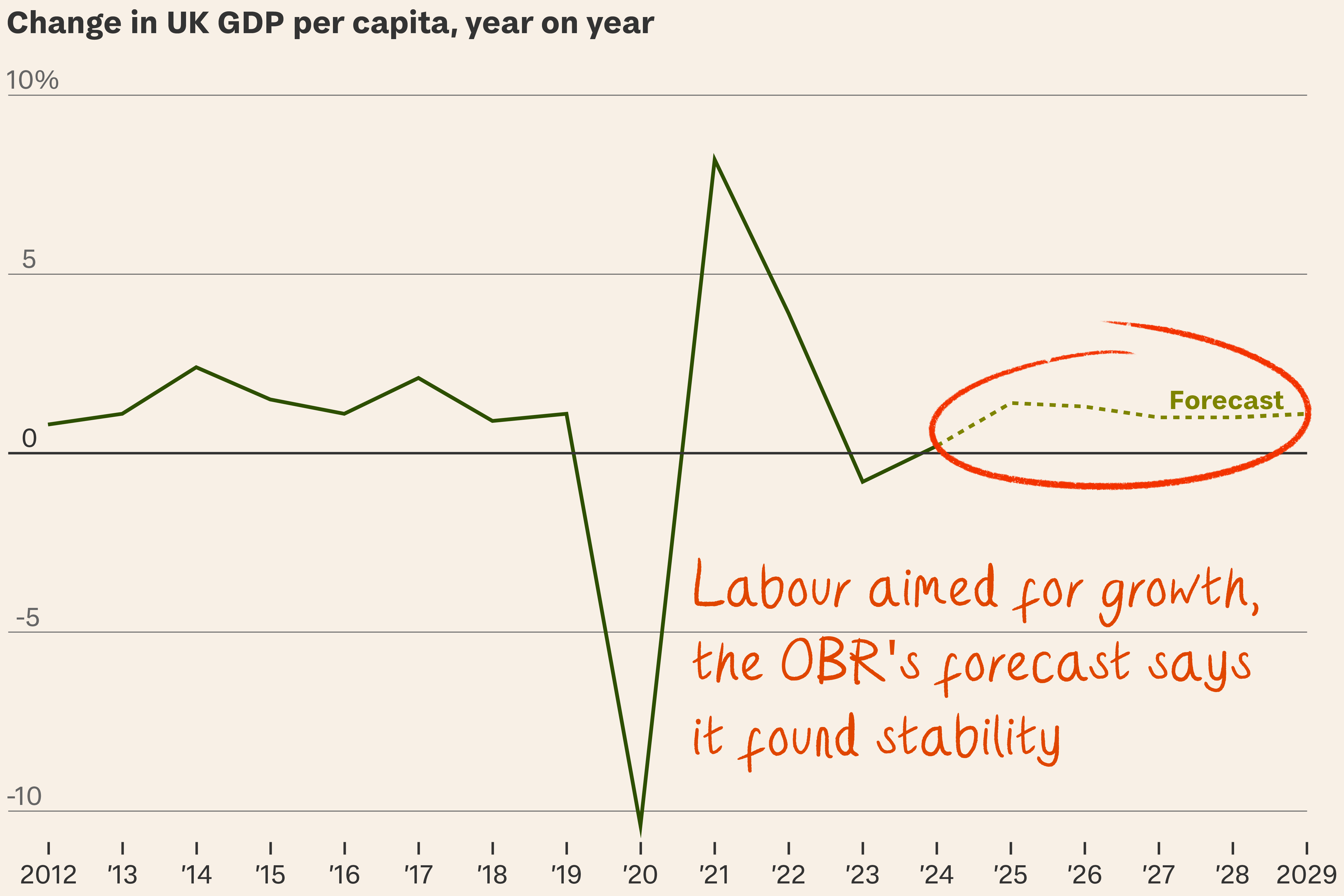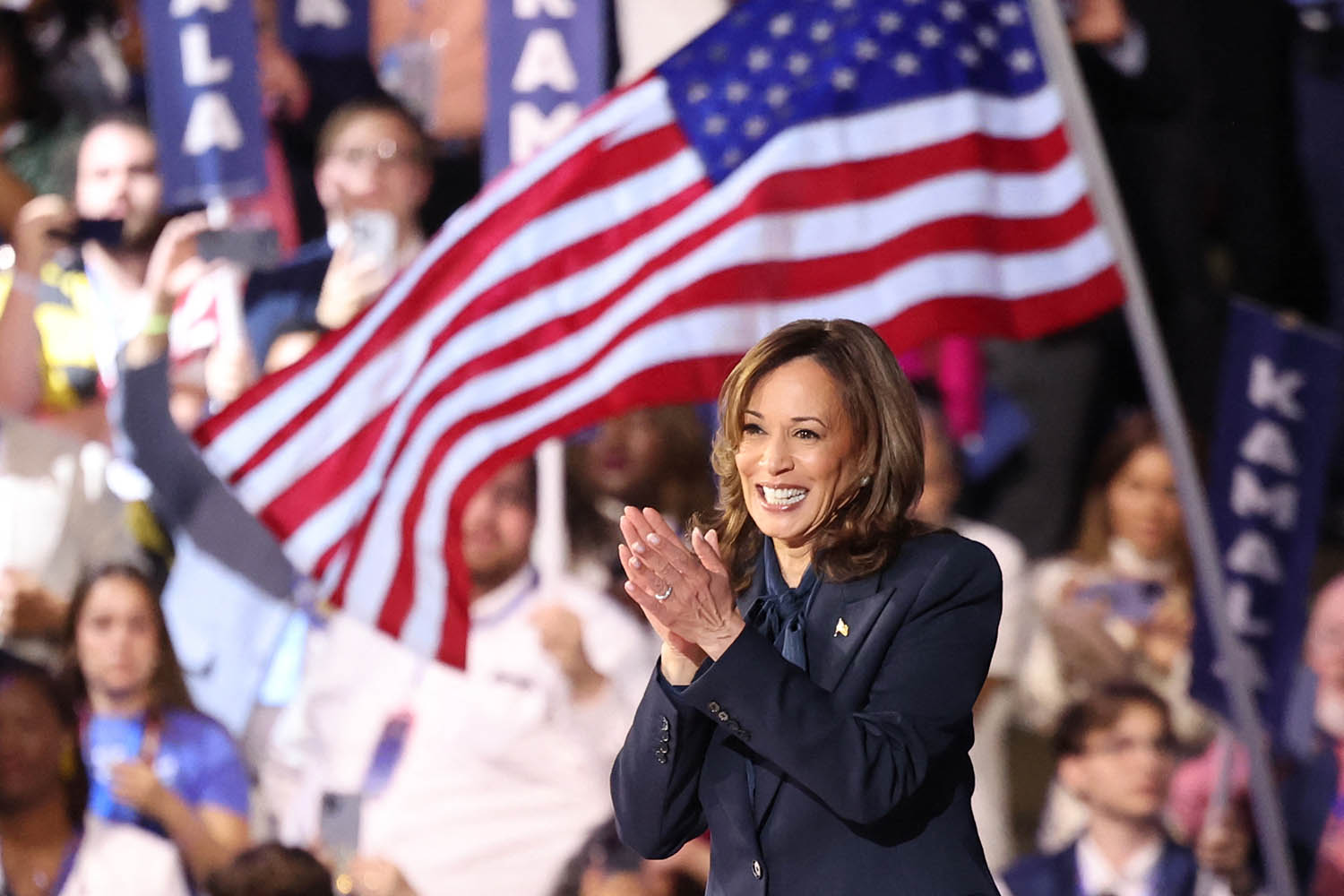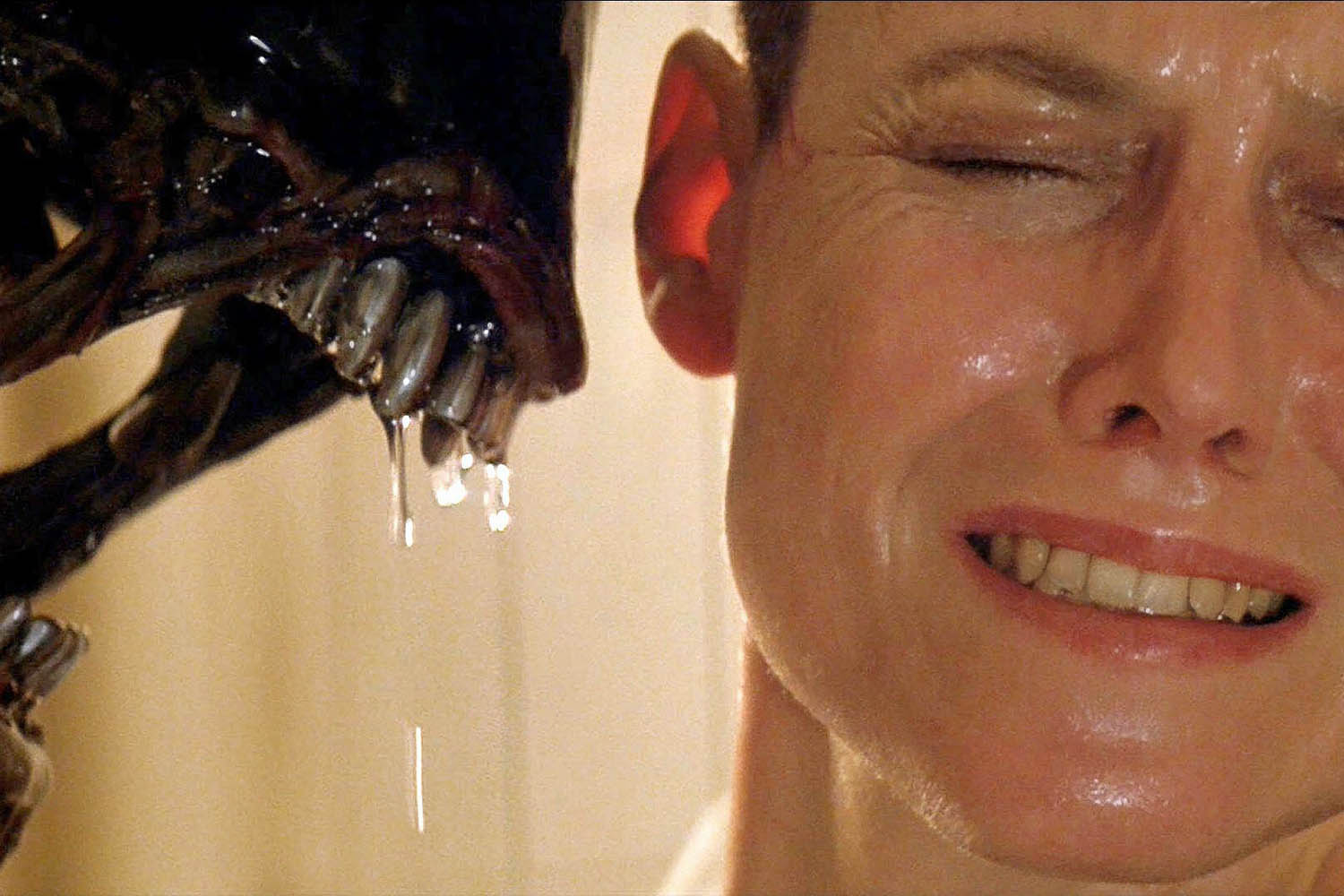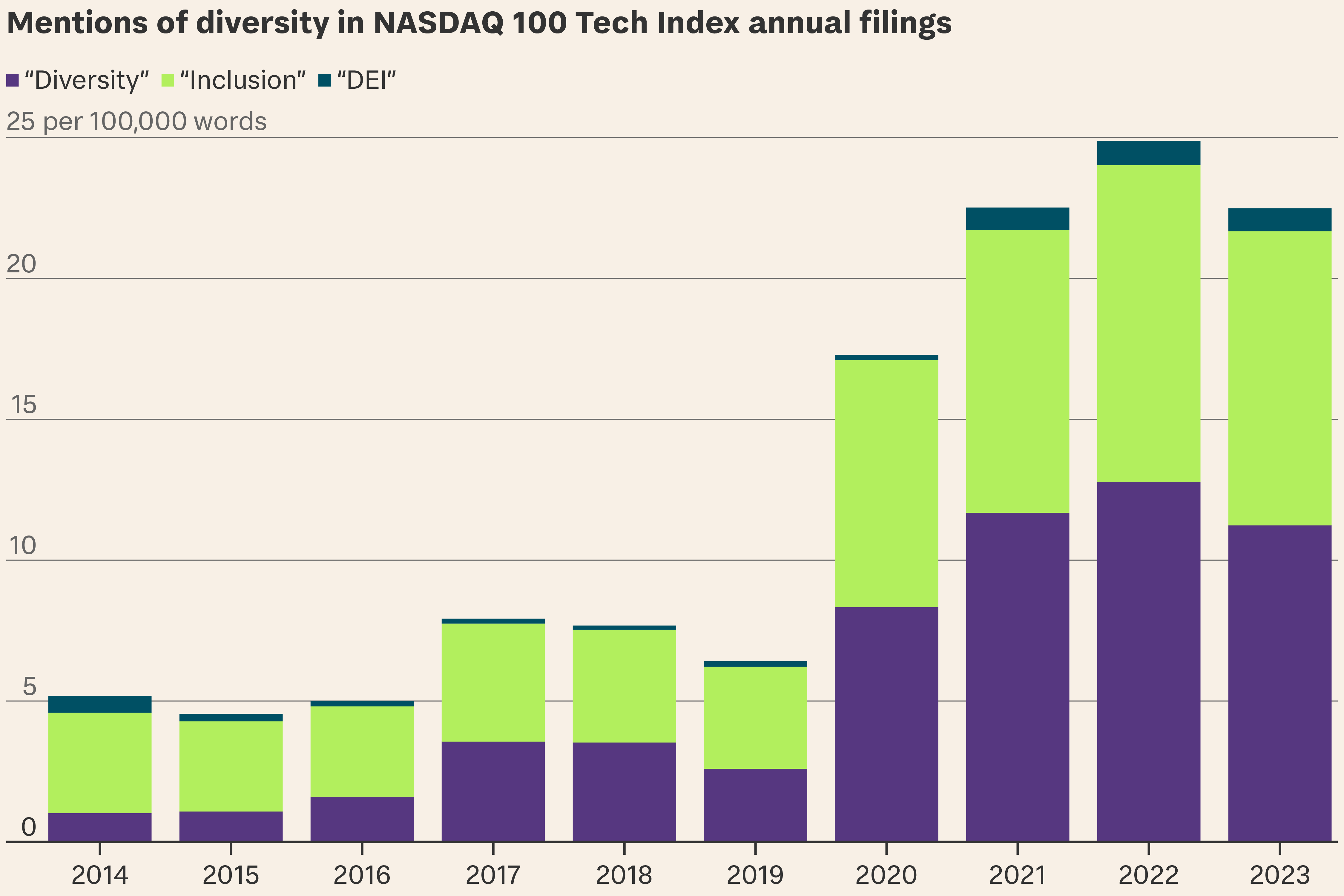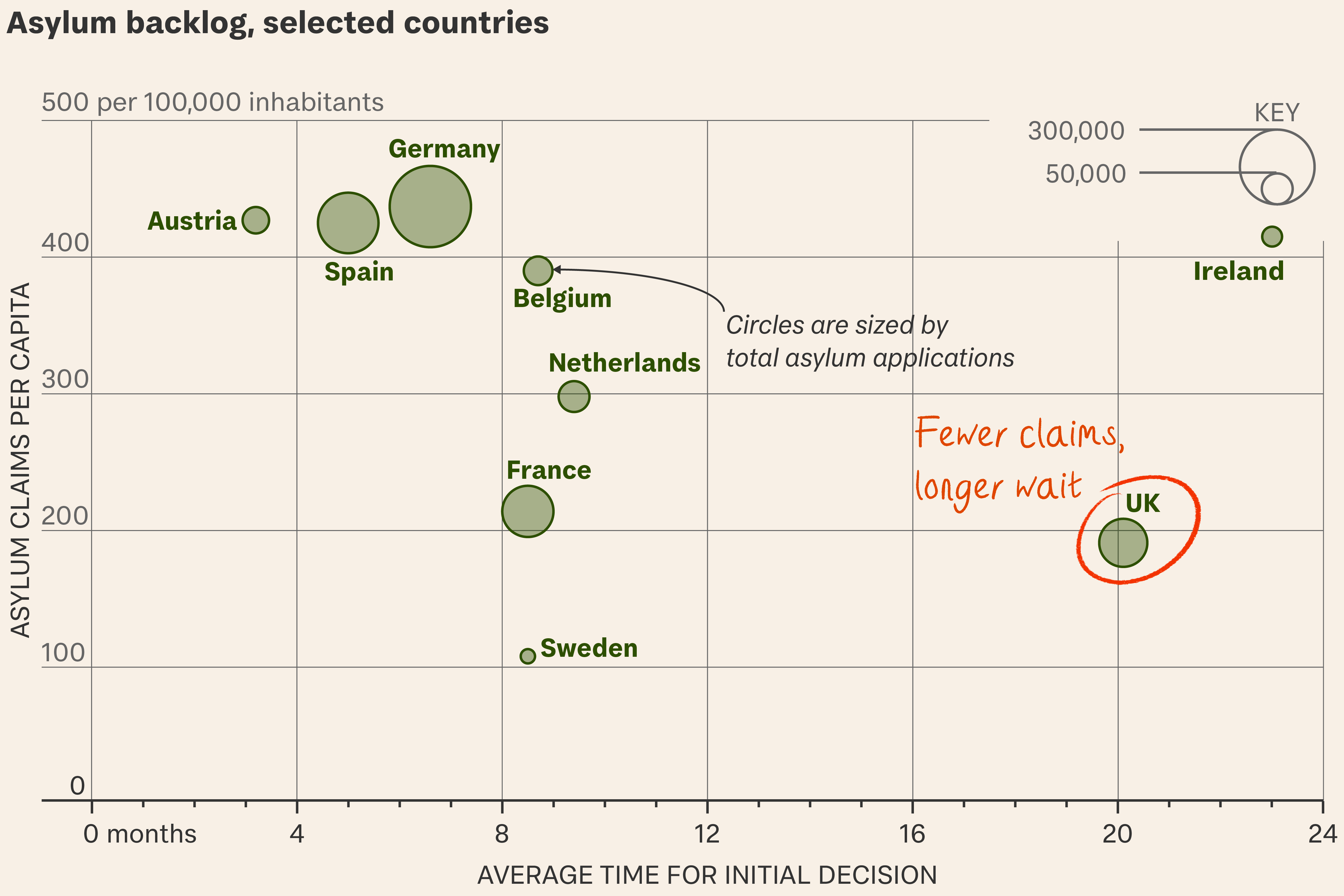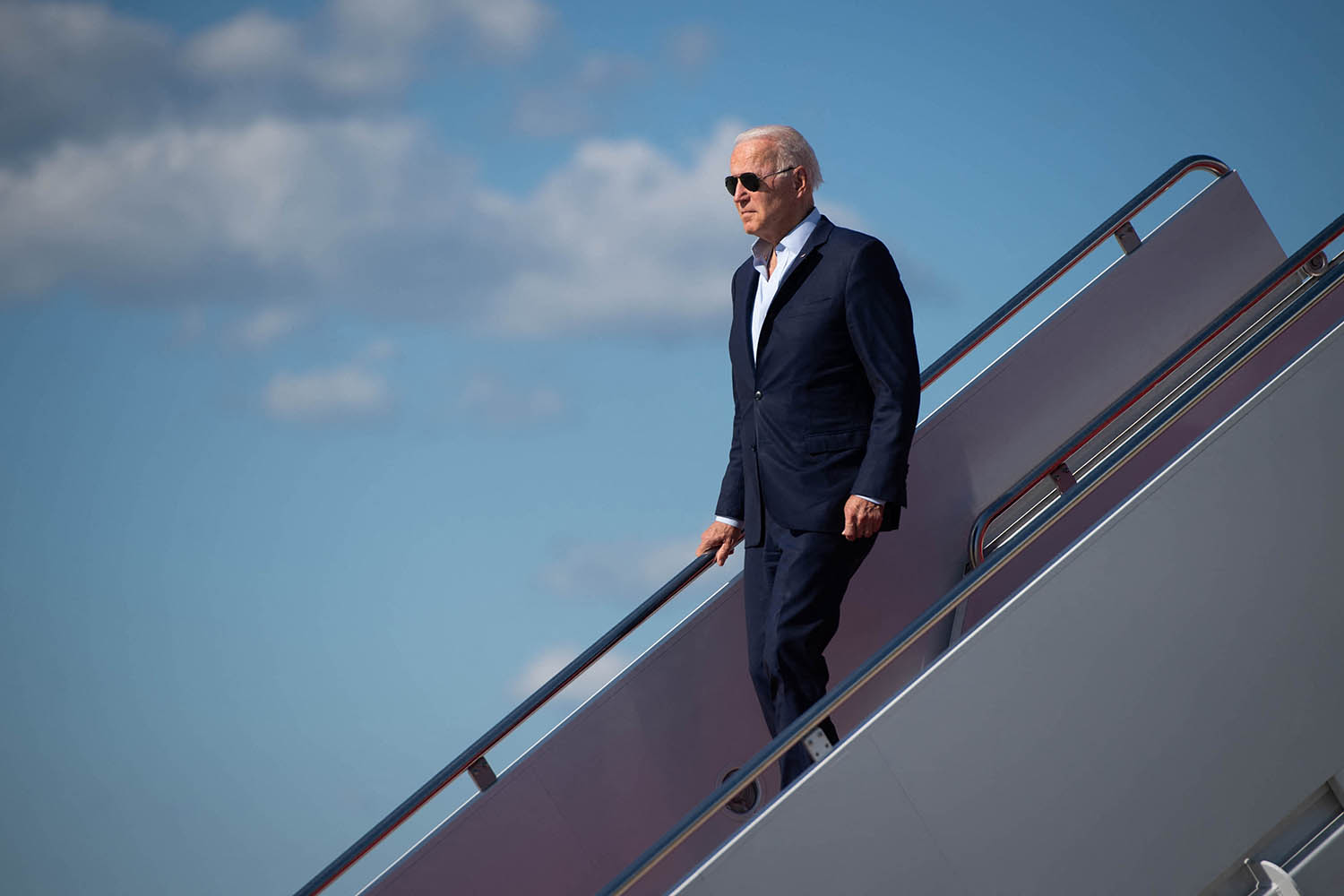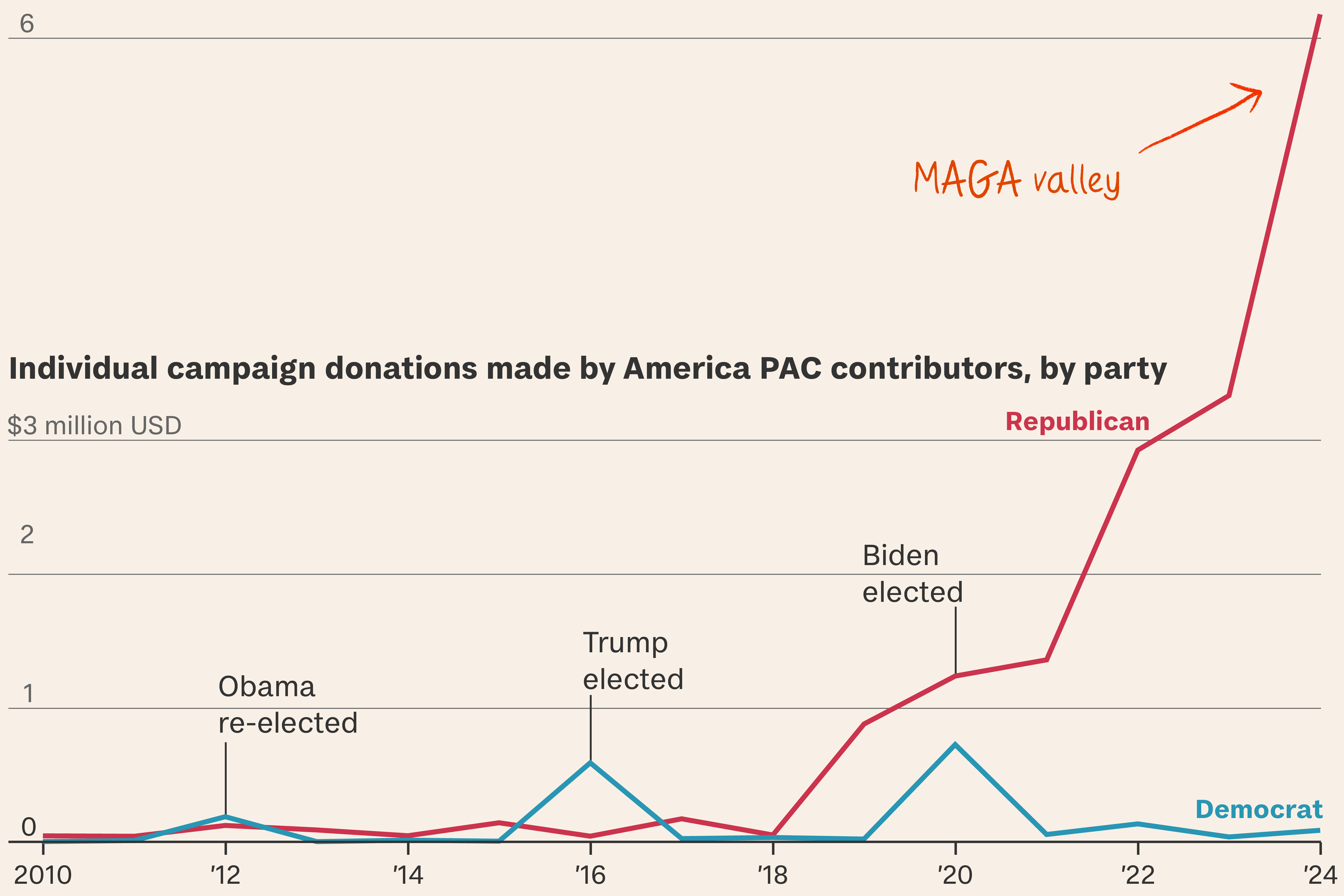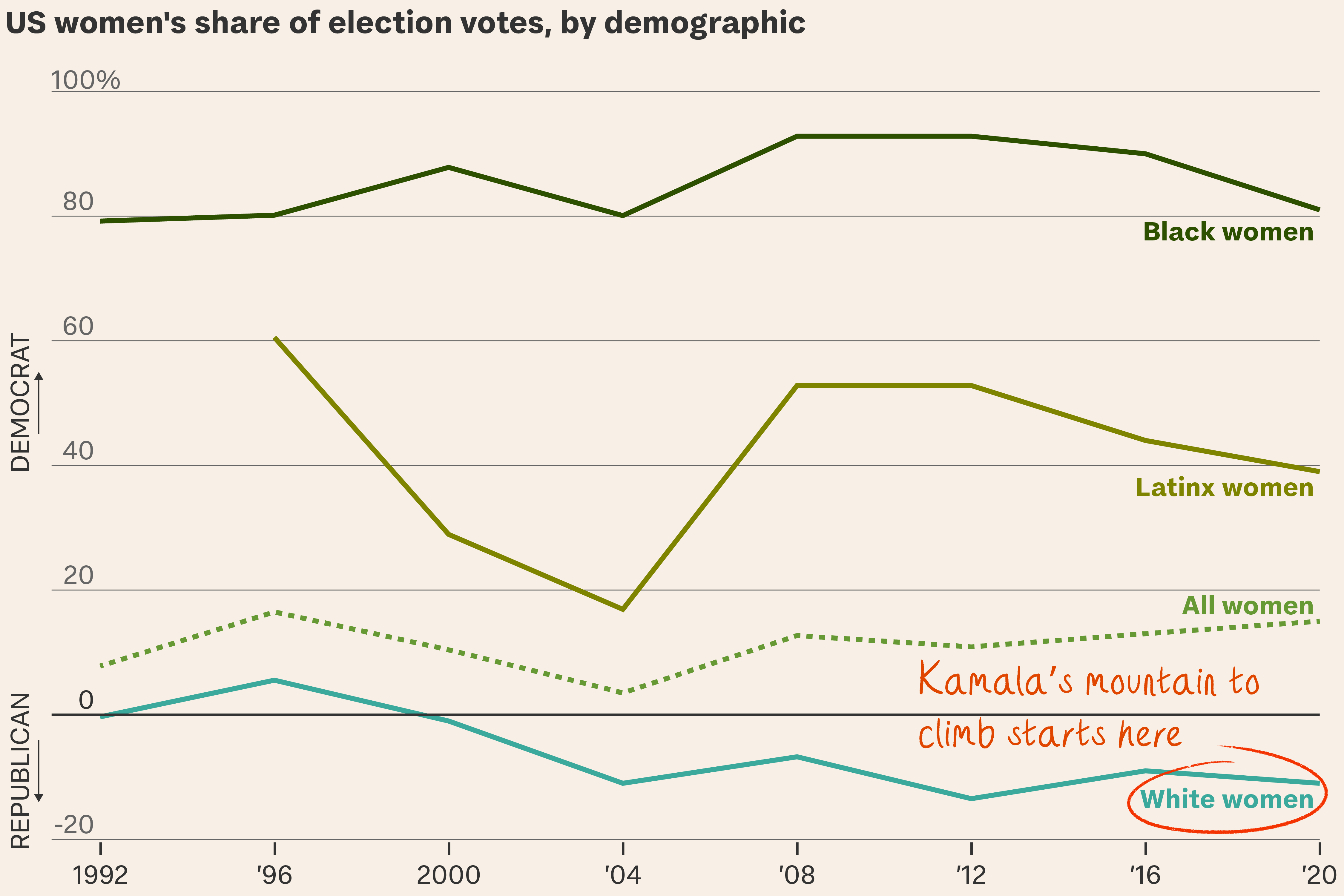
It’s not simple, but she can reach parts of the electorate that Biden couldn’t.
By the time Joe Biden dropped out of the US presidential election on Sunday, it seemed that his only realistic path to victory was through three battleground states in the Rust Belt – Michigan, Pennsylvania and Wisconsin – and their combined 44 electoral votes.
Over the past week, as Kamala Harris has emerged as frontrunner for the vacated Democratic nomination, the key question about her candidacy has become whether she can mobilise parts of the electorate that had closed themselves off to Biden and narrowed his path.
So what? She’s certainly going to try. Expect her to…
- reconnect with the young, Black and Hispanic voters who have lost enthusiasm for Biden;
- look for a new path to the White House that goes, at least in part, through the Sun Belt; and
- retain the support of suburban voters who were critical to Biden’s win four years ago.
The big three. Since the race began, Biden had been struggling with three of the groups at the centre of the Democratic coalition: young voters, Black voters and Hispanic voters. With the huge caveats that electoral demographics are complicated and there isn’t much Harris-specific polling yet, there are some early indicators that look promising for her ability to reconnect with the party’s core voters.
- A new Morning Consult poll found that Harris increases Biden’s lead over Trump with Hispanic voters by four points and with Black voters by 15 points, from 39 per cent to 54 per cent.
- The data on Harris and young voters is more varied, but a new NPR/Marist/PBS poll found that between 9 July and 22 July, the share of under-35s who are undecided jumped from one to 11 per cent – a sign that she’s at least piqued their interest. (Also, she’s become beloved on TikTok.)
A Zoom call in support of Harris, organised by the organisation Win With Black Women, attracted more than 44,000 participants and raised $1.5 million in just three hours.
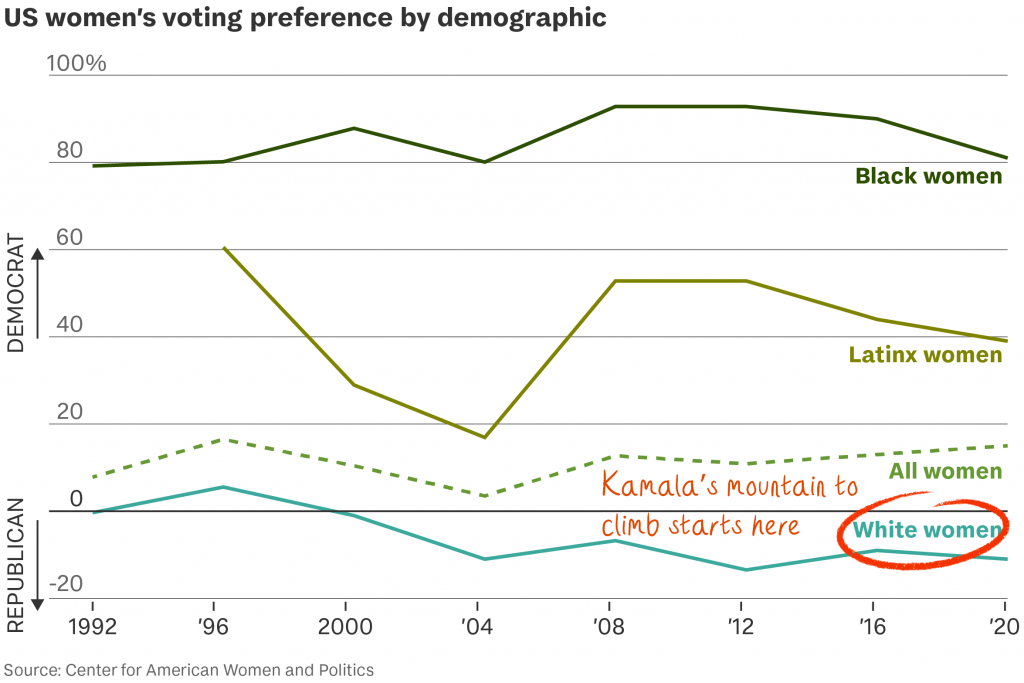
Under his belt(s). The seven battleground states can be sorted into two different regions:
- The Sun Belt: increasingly diverse but historically conservative states which stretch from the hot and humid southeast to the hot and dry southwest; includes Arizona, Georgia and Nevada (all of which Biden won in 2020) and North Carolina (which he did not).
- The Rust Belt: former industrial states in the Midwest and Northeast which have large numbers of working class and non-college educated white voters, groups that have historically favoured Democrats but are increasingly voting Republican; includes Michigan, Pennsylvania and Wisconsin (all won by Biden in 2020).
Democrats are hoping that putting Harris at the top of the ticket will knock some of the Sun Belt states – which have younger, less white populations – back into play, because winning just one of Georgia, Arizona or North Carolina immediately multiplies the possible paths to 270 Electoral College votes.
Suburbs on her mind. One of the keys to Biden’s 2020 victory was his strength among suburban voters – and specifically white women – a group that Clinton lost in 2016. The challenge for Harris is going to be finding issues and messages that help her both retain the support of whiter, older suburban voters and build support among the younger, more racially diverse cohort Biden has struggled to court. For some issues, threading this needle will be relatively straightforward (think “abortion”); for others it won’t be (think “Israel and Gaza”).
What’s more… Her choice of running mate will be crucial but won’t be a silver bullet. Note that if Senator Mark Kelly were the choice the Democrats could put a placeholder in his Arizona seat until 2026 – and could count on him to compete hard for the state’s 11 electoral votes. That said, Governor Josh Shapiro is riding high in Pennsylvania, which has 19.


